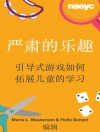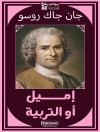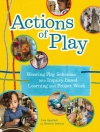Because nonfiction and young readers are a natural fit!
Common Core or not, providing our youngest readers with a thorough grounding in nonfiction is just good teaching. There’s no better way to ensure our students acquire the background knowledge and vocabulary so essential to their understanding of subjects like science and social studies. Helen Patrick and Panayota Mantzicopoulos have written this book to assist you with this all-important effort.
What makes Engaging Young Children so unique? Above all else it’s realistic. It describes immediately useable strategies for using informational reading and writing to both enrich and expand the curriculum. Taking their lead from the Common Core, the authors provide:
• Criteria for choosing books
• Strategies for shared reading and reading aloud
• Informational writing activities
• Ways to guide parent involvement
• Real-life classroom success stories
Read the book, try out some of the strategies, and you’ll quickly see for yourself just how engaging, informative, and formative nonfiction can be.
‘ I am very grateful to Patrick and Mantzicopoulos for reminding me how essential informational reading and writing are, not only to the development of language arts skills, but to the reintroduction of science and social studies to daily elementary education.’
—Nina Orellana, Title I Teacher
Palm Bay Academy Charter School, Palm Bay, FL
‘This book is a must have for elementary educators, teachers, and professional faculty. It illustrates the power of reading while also introducing the whole idea of students and how others interpret success with them.’
—Robert E. Yager, Professor of Science Education
University of Iowa, Iowa City, IA
Table des matières
Series Preface to Classroom Insights
Acknowledgments
About the Authors
Introduction
1. English Language Arts in the Early Years of School: Priorities and Consequences
2. Do Young Children Find Informational Books Hard to Understand?
3. Are Young Children Really Interested in Informational Books?
4. What Should I Consider When Selecting Informational Books?
5. How Can I Use Shared Informational Book Reading in my Classroom to Build Children′s Reading Skills and Background Knowledge?
6. How Can I Incoporate Writing With Informational Books?
7. How Can Parents Use Informational Books to Support Children′s Learning?
References for Children′s Books
References for Research Sources
Index
A propos de l’auteur
Dr. Panayota (Youli) Mantzicopoulos is Professor of Educational Psychology in Purdue University’s College of Education. Her interests include early personal-social development and learning in diverse environments. Her research has examined the effectiveness of early grade-retention practices, the development of self-competence beliefs, early teacher-child relationships, and shared-reading of informational texts as a context for learning both at home and school. Her most recent work has been associated with the Scientific Literacy Project (http://www.purduescientificliteracyproject.org/) where she has focused on the integration of informational texts with science inquiry activities and on investigating the development of children’s socially derived meanings about science. Visit her at https://collaborate.education.purdue.edu/edst/youli/default.aspx












